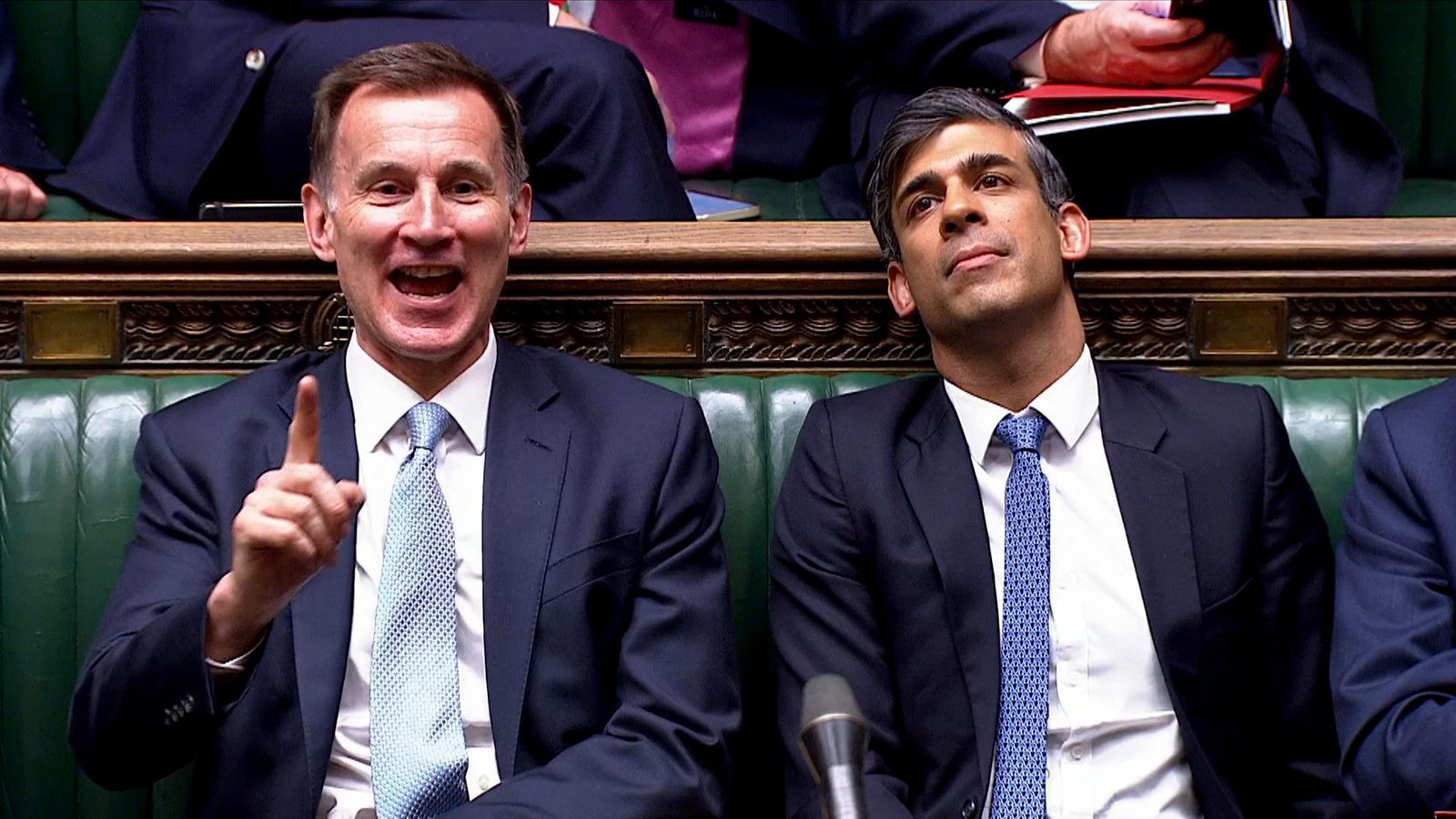The news that inflation had fallen to 2.3%, its lowest level for nearly three years, seems to be one of the reasons the PM called an election for 4 July.
Mr Sunak declared at his first stump speech: “The economy has turned a corner… our plan is working”.
The latest ‘economic optimism index’ for May from pollsters Ipsos suggests that many voters agree with him.
Some 33% of people say the economy will improve in the next 12 months – up 12 points from April (while some 37% say it will worsen).
The national economic mood appears to be on the rise and at its highest point since the summer of 2021 – around the time Britain exited lockdown and celebrated ‘Freedom Day’.
Will economic optimism lead to electoral success?
Historically, the link between voters’ economic expectations and election outcomes is mixed.
In 1983, growing economic optimism saw the Thatcher government secure a four-point swing towards it, against a divided opposition.
But in 2010, Gordon Brown’s government was voted out of office – suffering a swing of five against it – despite a similar proportion of the electorate thinking that the economy was improving.
And in 1997, Labour under Tony Blair won a landslide on a 10-point swing, even though voters were broadly positive about the direction of the economy.
The net economic optimism rating enjoyed by John Major back then (+13) was significantly better than that for Rishi Sunak at the moment (-4).
The last election is a notable historical anomaly, with Boris Johnson securing a swing of 4.6 points despite a prevailing mood of economic pessimism (-29).
But is the improving economic mood translating into greater support for the government?
At the moment, support for the Conservatives in the polls is static – around 23.2% in the Sky News poll tracker, nearly 21 points behind Labour.
The mood for change
So, why isn’t this upswing in economic optimism delivering the electoral rewards that one might expect?
Simply, the electorate has turned against the government and is in the mood for change.
In the latest polling by Ipsos some 66% of people disagreed that it deserved to be re-elected, while 73% said it was ‘time for a change’.
Ahead of the 1979 election, Labour PM Jim Callaghan famously wrote in his diaries, “there are times, perhaps once every thirty years, when there is a sea-change in politics. It then does not matter what you say or what you do. There is a shift in what the public wants and what it approves of. I suspect there is now such a sea-change and it is for Mrs Thatcher.”
The outcome of the 2024 election will hinge upon whether there has indeed been a sea-change in the mood of the electorate and whether signs that the economy has turned a corner will do little to change its mind.

